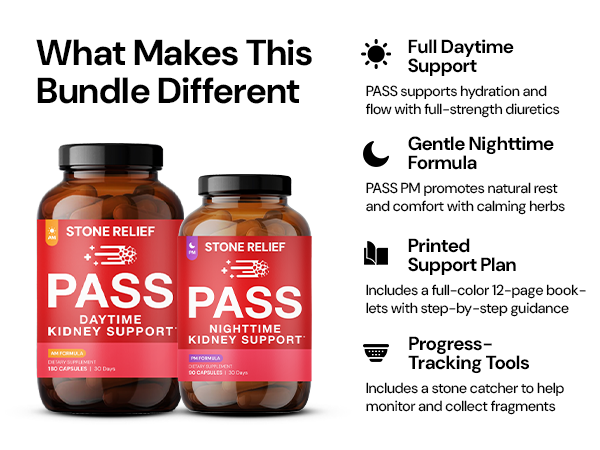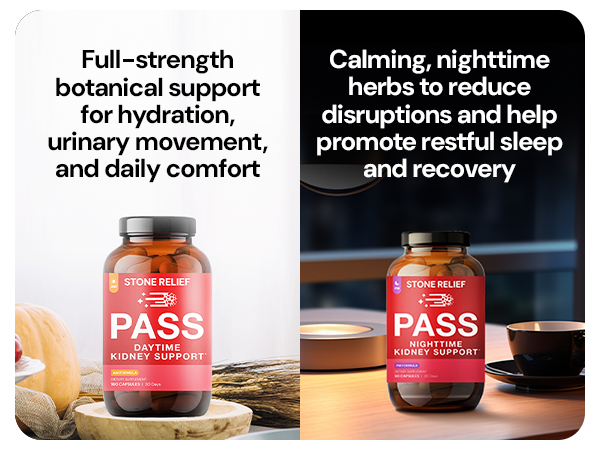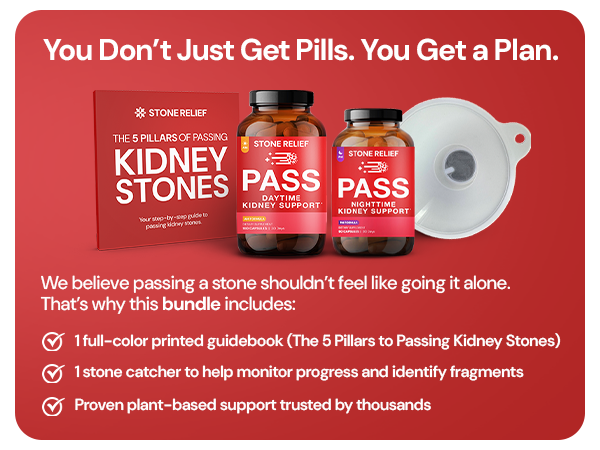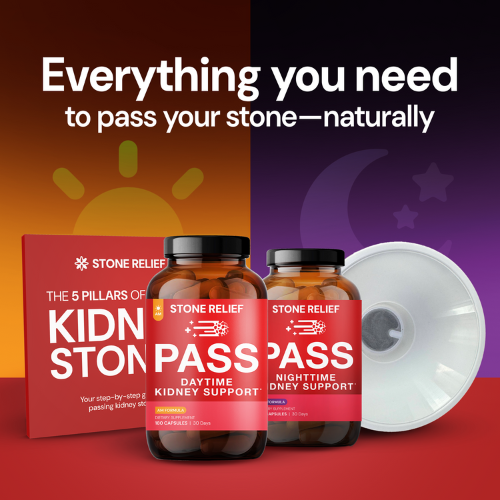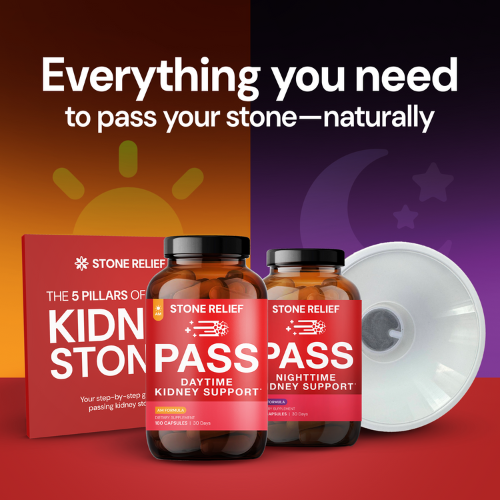Vitamin C Kidney Stones: What You Need to Know
Vitamin C can seem like a safe way to boost your immune system, but if you're prone to kidney stones, it could be doing more harm than good. In this blog, I dive into how excess vitamin C impacts kidney stone formation and what you should watch out for this cold and flu season.
Key Takeaways
-
Excess vitamin C intake can significantly increase urinary oxalate levels.
-
Vitamin C is converted to oxalate in the liver, kidneys, and gut.
-
Most people with calcium oxalate stones should minimize high-dose vitamin C supplements.
-
Diet and vitamin C management are critical to preventing recurrent kidney stones.
When cold and flu season hits, many of us rush to load up on vitamin C. I used to do the same thing, thinking I was doing my body a huge favor. But after battling kidney stones for years, I found out the hard way that my approach was actually making things worse. Today, I want to share what I’ve learned about vitamin C kidney stones, so you can avoid the same mistakes.
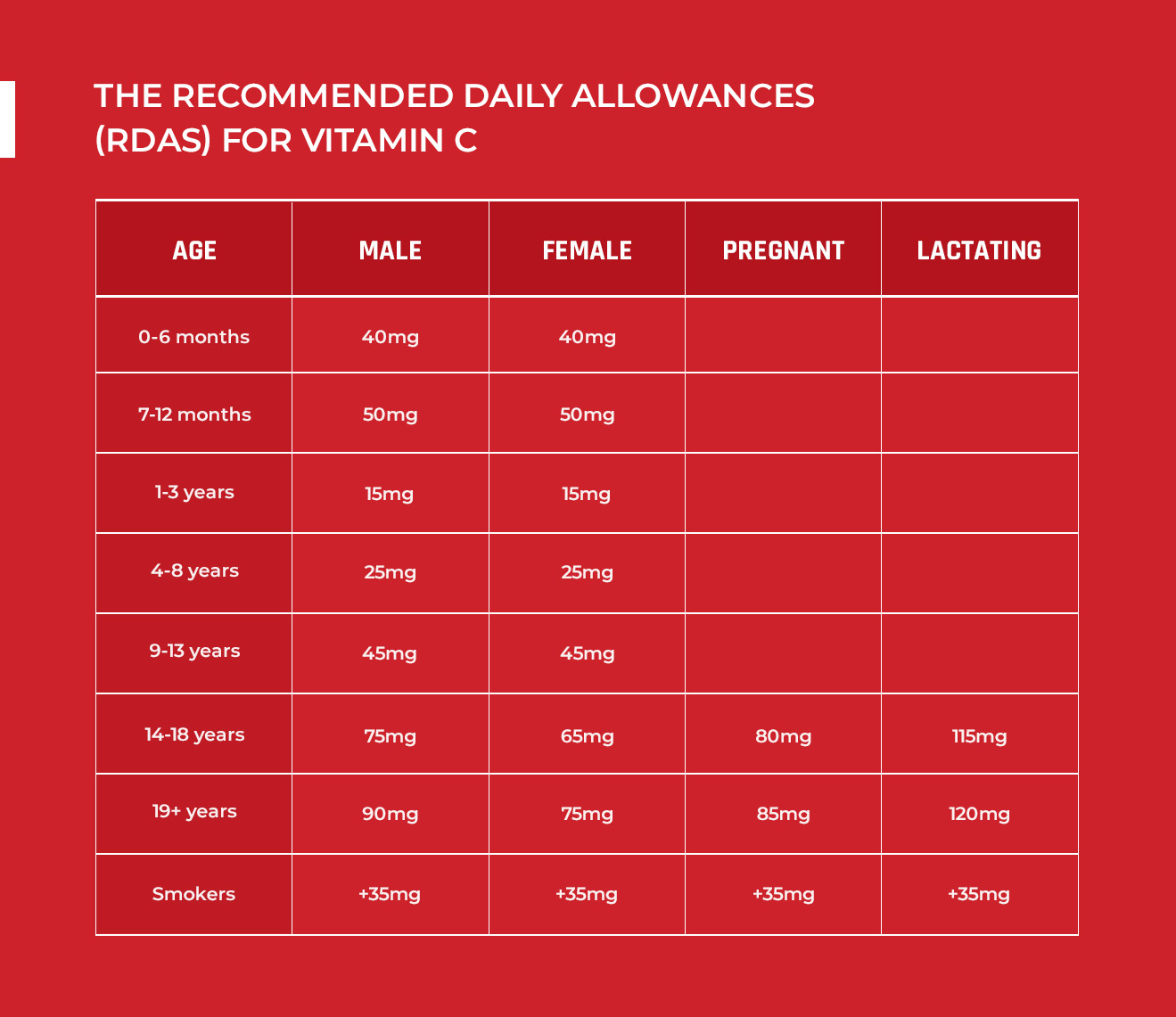
What is Vitamin C?
Vitamin C is what’s called an essential vitamin, meaning we have to get it through food because our bodies can't make it on their own. You might also hear it referred to as ascorbic acid.
Most people know fruits, especially citrus, are high in vitamin C. What most don’t realize is that vitamin C is found in almost all foods—even meat. However, in the United States, vitamin C levels are mainly reported for fruits and vegetables, not meat.
The recommended daily amount (RDA) of vitamin C is about 90 milligrams per day. But there’s a catch: if you’re eating a standard, high-carbohydrate diet, your body competes for vitamin C absorption because glucose and vitamin C fight for the same cellular pathways. That means you might need more if you're eating the typical American diet.
If you’re eating more of an animal-based diet, your need for vitamin C drops dramatically. Early researchers, like Vilhjalmur Stefansson, showed that even just 10 milligrams a day was enough to stay healthy without risking scurvy when living on an all-meat diet.
🛒 Check Price & Purchase Stone Relief Pass AM/PM Bundle on Amazon
The Myth About Vitamin C and Colds
Like many others, I used to think taking mega-doses of vitamin C would prevent colds or the flu. Turns out, that's not quite true. Research shows that vitamin C doesn't prevent illness, but it might shorten the duration a little bit.
This is where things start to go sideways for those of us prone to kidney stones. Even small increases in vitamin C intake can lead to big problems.
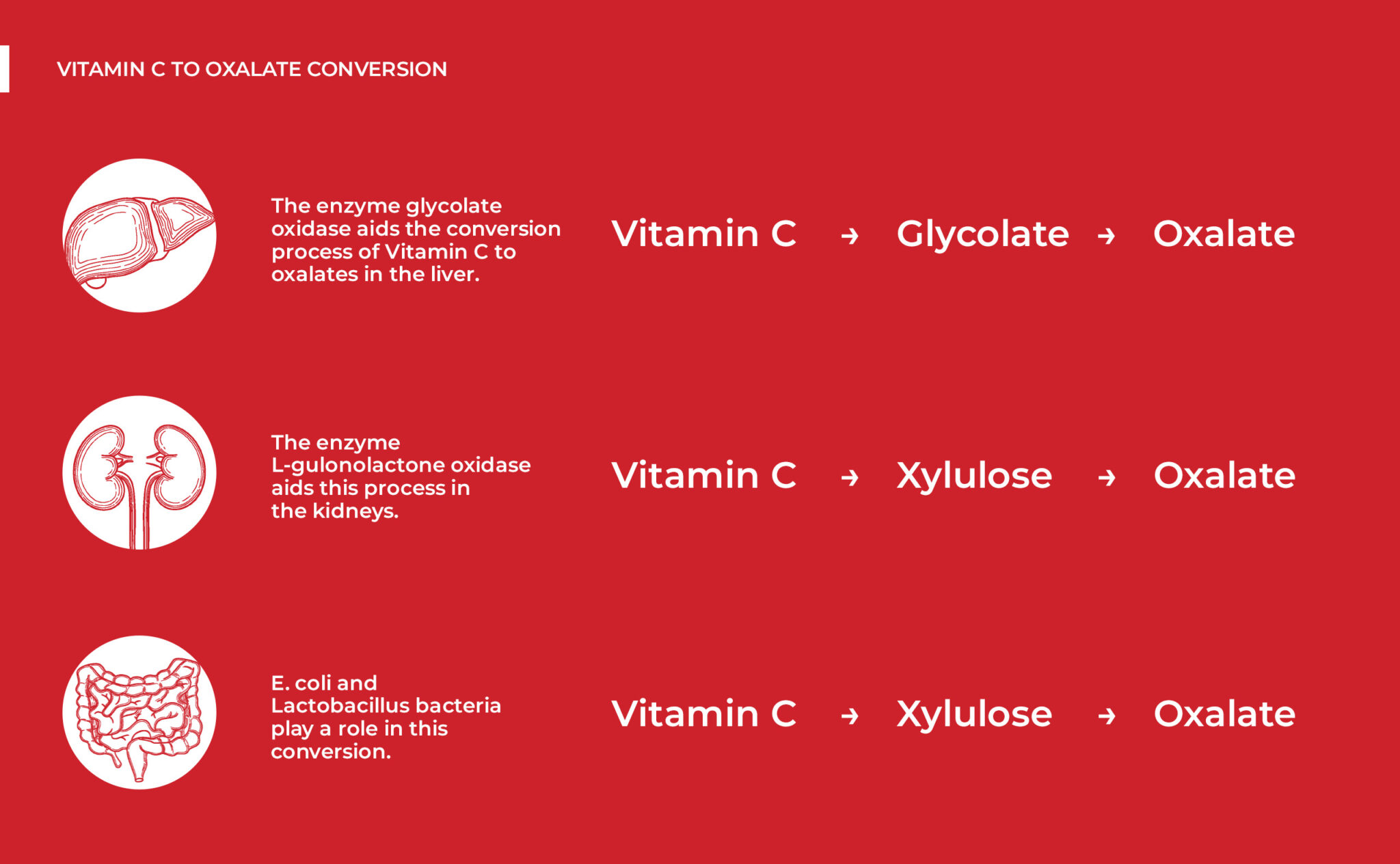
How Vitamin C Impacts Kidney Stones
Unfortunately, too much vitamin C can increase your risk of kidney stones.
And it makes sense when you think about it from an evolutionary perspective. I believe that people like us, who form calcium oxalate stones, likely have ancestors from parts of the world where eating a lot of vegetation wasn’t the norm. So our bodies never adapted to handle high levels of certain plant toxins—especially oxalate.
Here’s the scary part: vitamin C can convert into oxalate inside your body in multiple places.
In the liver, excess vitamin C goes through a process called glycolate oxidase, turning it into glycolate and then into oxalate.
In the kidneys, a similar enzymatic reaction happens, turning excess vitamin C into a sugar called xylulose, which then gets converted into oxalate.
In the gut, certain gut bacteria can also convert leftover vitamin C into oxalate, which can then get absorbed into the bloodstream and deposited into the kidneys.
🛒 Check Price & Purchase Stone Relief Pass AM/PM Bundle on Amazon
The Damage from Excess Vitamin C
Studies show that taking between 500 and 2000 milligrams of vitamin C daily can cause a 31% to 100% increase in urinary oxalate.
That’s huge. Especially when you consider that most people with a history of kidney stones are already right on the edge when it comes to oxalate levels.
When I used to take high-dose vitamin C during cold and flu season, I thought I was being smart. In reality, I was handing my body the ingredients to create another stone.
Think about the products out there: vitamin C powders, supplements, fruit juices—many containing 1000+ milligramsper serving. It's no wonder so many kidney stone formers keep ending up in pain despite their best efforts to stay healthy.
Why Diet Matters
If you’re working to prevent calcium oxalate kidney stones, you have to look at your diet and your supplementation strategy.
If you’re eating a typical diet, the RDA of 90 milligrams should be your ceiling.
If you’ve moved to an animal-based or low-carb diet to manage your stones, your real requirement for vitamin C might be much closer to 10 milligrams.
Either way, loading up on high-dose vitamin C supplements is a mistake if you're prone to stones.
Your body simply isn't built to handle it, and that excess vitamin C could easily be your next stone just waiting to form.
🛒 Check Price & Purchase Stone Relief Pass AM/PM Bundle on Amazon
Final Thoughts on Vitamin C and Kidney Stones
Navigating vitamin and mineral intake gets tricky when you’re prone to kidney stones. But one thing is very clear: excess vitamin C is a major risk factor.
If you want to avoid making things worse this cold and flu season, rethink those mega-doses. Stick to natural food sources, and avoid vitamin C supplements unless you have a specific, medically supervised reason to take them.
Managing your vitamin C intake is just another piece of the puzzle when it comes to stopping kidney stones for good. And trust me, it's worth it. Nothing tastes better than a life free from stone pain.
If you're not sure where to start, there’s always a path forward—and it begins with getting your body back into balance.

